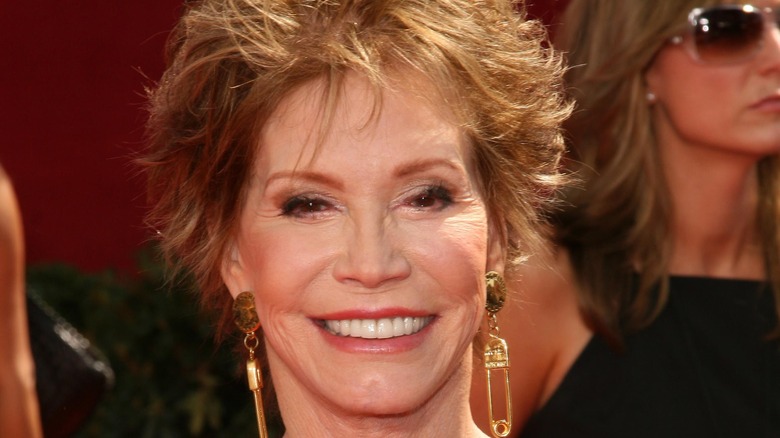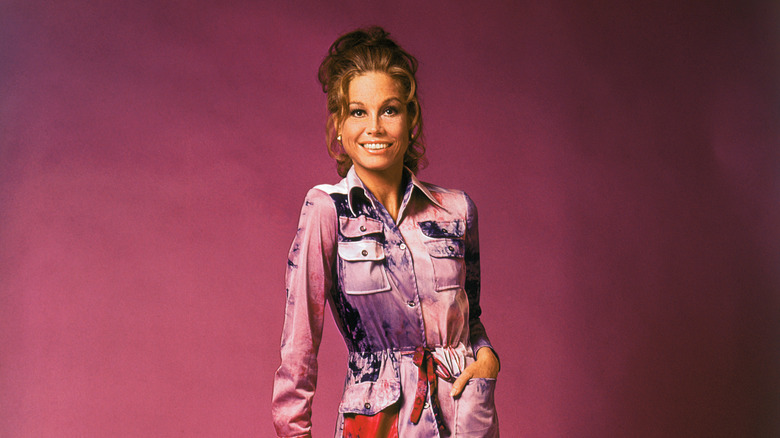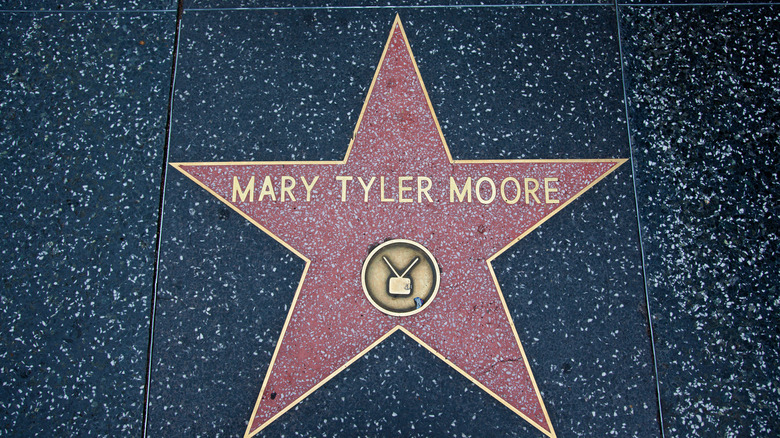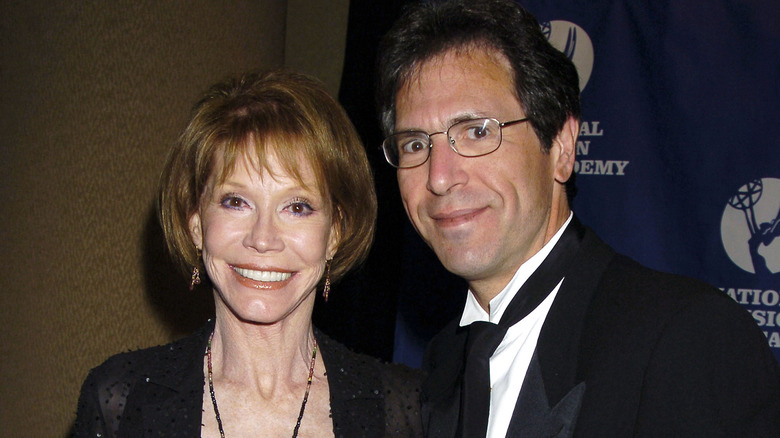The Dark Secret '70s Star Mary Tyler Moore Hid
On the evening of January 28, 2012, the beloved actor Mary Tyler Moore appeared at the Screen Actors Guild Awards in Los Angeles. She was there to receive a Life Achievement Award for her long and distinguished career, which included roles in "The Dick Van Dyke Show" and "The Mary Tyler Moore Show" as well as her Oscar-nominated performance in the 1980 film "Ordinary People." As she stood before the television audience giving her speech, she hid a secret from the public that she'd carried for more than 30 years.
Moore was severely blind. That night it was obvious to those in attendance but not to the television audience. She had to be escorted from the stage. "They brought the lights up and she was there," her third husband Dr. Robert Levine told Page Six in May 2023. "And the reason for that was she could not walk safely across the stage at that point."
She was open about her diabetes — but not one symptom
When doctors diagnosed Mary Tyler Moore with type 1 diabetes in 1969, a year before her groundbreaking "The Mary Tyler Moore Show" debuted, she was 33 and in the hospital after a miscarriage. "It seems that during the necessary D&C procedure that followed the miscarriage, it was discovered that there might be a little problem with the amount of sugar present in my blood," she recalled in her autobiography "Growing Up Again: Life, Loves, and Oh Yeah, Diabetes." "The normal count is between 70 and 110. Mine was 750!"
At the time of Moore's diagnosis, there was no at-home blood testing and only one type of insulin, just a few aspects of the messed up history of diabetes. Moore became a vocal advocate for others with the disease through her activities with the Juvenile Diabetes Research Foundation (JDRF). But she hid the fact that this disease was slowly robbing her of her eyesight from the public.
Her vision loss got worse as she aged
Mary Tyler Moore's health issues were just one aspect of a tragic real-life story that included alcohol addiction and the loss of her son, who accidentally shot himself in 1980. During the ensuing decade, Moore married Dr. Robert Levine, sought alcohol treatment, and also began to experience vision loss. In 1989, she underwent an eye operation that allowed her to continue working and reading, but as she got older, her vision diminished even more. "Over time, she suffered many of the complications of diabetes," Levine told Fox News Digital. "But the one thing that had the greatest impact on her was the fact that she was nearly blinded by it in her later years."
Moore was not alone. According to the Juvenile Diabetes Research Foundation (JDRF), more than 50 million people worldwide suffer from vision loss related to diabetes. The condition, called diabetic retinopathy, is the "leading cause of blindness in working-age adults" and occurs when high blood sugar damages the blood vessels in the retina.
The Mary Tyler Moore Vision Initiative
Mary Tyler Moore's vision eventually became so limited that she could no longer read or safely navigate walking across a room. "And for a woman who was in her heart a dancer and so physically capable and so independent, just imagine what that would mean to you, to have your joy robbed from you," Dr. Robert Levine told Fox. Two years after Moore's appearance at the SAG Awards, Betty White, who had a decades-long friendship with Mary Tyler Moore, told Closer Weekly that Moore's "eyesight is what the big problem is right now" and that her friend was "almost beyond the point" of being able to see at all.
Mary Tyler Moore died on January 25, 2017 at age 80. According to her death certificate, the cause was cardiopulmonary arrest, with contributing factors that included diabetes (via TMZ). Following her death, Levine, who is a cardiologist, helped launch the Mary Tyler Moore Vision Initiative with the JDRF, which has the stated goal to "create a world without vision loss" from diabetes "by working across the entire therapy development and access pipeline." While Moore may have hidden her blindness in life, in death her memory may help others experiencing the same condition.
If you or anyone you know needs help with addiction issues, help is available. Visit the Substance Abuse and Mental Health Services Administration website or contact SAMHSA's National Helpline at 1-800-662-HELP (4357).



